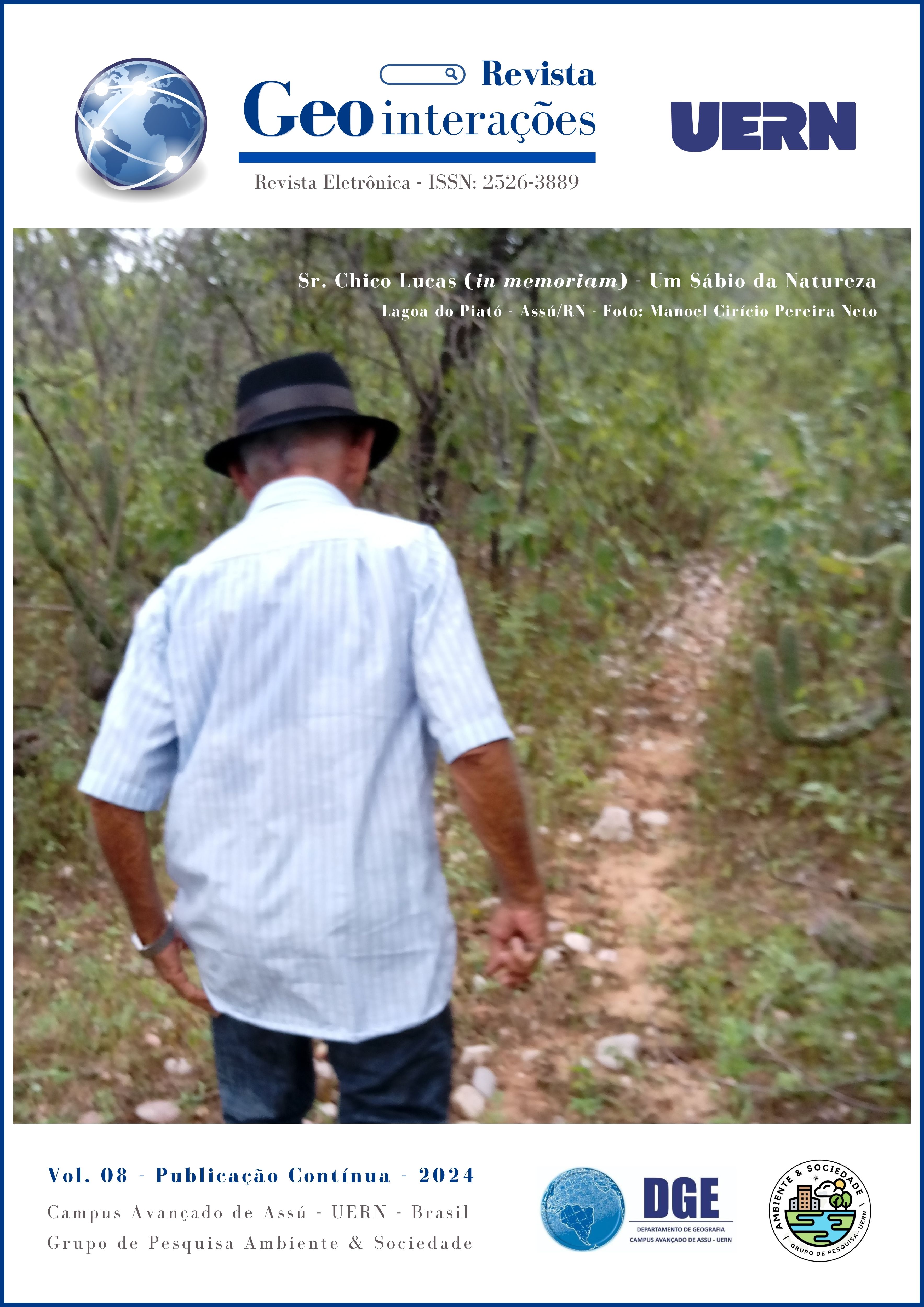OS REFÚGIOS DA BIODIVERSIDADE NO SERIDÓ POTIGUAR - BRASIL, FRENTE A INSTALAÇÃO DE PARQUES EÓLICOS
DOI:
https://doi.org/10.59776/2526-3889.2024.5587Keywords:
energia limpa, desertificação, seridó, energias renováveis, geoparque seridó, brasilAbstract
The growth of wind energy in Rio Grande do Norte, focused on the semi-arid region, is analyzed in this article in light of the challenges of environmental conservation. As the region advances in wind production, driven by the global demand for renewable energies, concerns arise about the adverse effects on the local ecosystem, such as deforestation and impacts on biodiversity. The research applies a multidisciplinary methodological approach to assess the environmental context and propose the creation of conservation units. The results indicate a concerning overlap of wind parks in areas of high priority for conservation, highlighting the urgency of environmental management policies that reconcile energy development and ecological protection. The article concludes by emphasizing the need for an integrated strategy that promotes both sustainable development and the preservation of biodiversity in regions susceptible to desertification, with a focus on the Seridó region of Rio Grande do Norte.
Downloads
Downloads
Published
How to Cite
Issue
Section
License
Copyright (c) 2024 Revista GeoInterações

This work is licensed under a Creative Commons Attribution-NonCommercial-NoDerivatives 4.0 International License.








